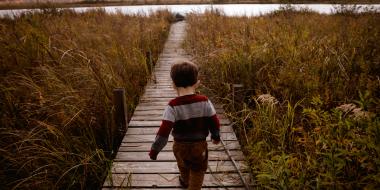Whether it’s a trip around the world or one just a few hours away, you are no doubt starting to feel some sense of panic about what to do with your little one and their sleep when you enter new time zones. Travelling and exposing your children to new cultures, new experiences and new sites is absolutely amazing. However, it can also be a cause of stress and upset if sleep goes completely off track and you are dealing with an over stimulated, over tired baby or child.
Much like the shift in time change with spring forward and fall back, you have two options when it comes to travelling to different time zones. You can either help your little one adjust before you leave or you can wait until you arrive at your destination to start shifting the schedule. If you are travelling east you may decide to keep the later bedtime and later morning wake up because let’s face it, that’s just a bonus when you are on vacation. If you are travelling west though you may decide to shift the schedule before leaving as the early bedtime and wake up might just be too early while on vacation.
There really is no way of judging or anticipating how your child will adjust to the time shift and whether or not it is going to be an easy transition or not. Using the tips below can certainly ease the transition but for some travellers regardless of how you try and help your little one, they may just struggle.
Travelling Tips:
- If you are away for less than a week and it is not a significant difference in time, you may not want to change much. Keep your regular schedule and hopefully your little one will have no issues adapting.
- If the time change is going to be significant (5+ hours) consider only adjusting them by a few hours instead. If you are visiting a place with a 7 hour time change, you may only want to shift the schedule by 3 or 4 hours, which will make coming home much easier.
- Allow a day or two of relaxation and recovery from the jet lag by not planning too much on the first couple of days after you arrive.
- A lot of exposure to natural daylight during their awake times, especially the first couple of days after arriving will help the circadian rhythm establish a lot quicker. It can also shorten the effects of jet lag.
- Making sure the sleep space is dark will have the same effect on their internal clock. It will cue them that it is time for sleep and can make the transition easier.
- The morning wake time is going to be really important. The best way to help your little one adjust to a schedule quickly is by maintaining a consistent morning wake up. Helping your child adjust to the time change and jet lag starts with a consistent day to day.
- Keep meal times as regular as possible. Helping their internal clock adjust to the new sleep times will be easier if they are eating at regular intervals as well. Trying to maintain somewhat of the same time blocks for meals and snacks as your child has at home will be key.
- Go with the flow. If your child isn’t settling well or not sleeping well, it may just be something you have to work with knowing that once you return home, you will focus and get back on track. Don’t let poor sleep get in the way of your vacation.
- Try and be mindful of sleep and their sleep needs by offering them the opportunity to nap and go to bed on time however, if it has to be a car nap or carrier nap here and there, that’s okay. The point is that they are still getting their sleep during the day.
- Be consistent with the length of their daytime sleep. If your child is not sleeping well at night you may think that letting them sleep longer than usual during the day will help but it could actually cause more challenges. If your child usually sleeps 3 hours a day, try not to allow them to sleep much more than that while away.
- Have a plan and know that once you return home there will be some work for you to do in terms of getting your child(ren) back to their regular schedule and routine.
Before Coming Home
If the time change was a significant one and you were away for an extended period of time, you can start helping your little one with the transition to home time by shifting the schedule little by little, day by day. The best way to do this would be to start with the morning wake time and the bedtime. Start with 15-30 minute shifts in schedule and see how your little one does and continue from there.
Once you arrive home
After any travelling or time away from home there will most likely always be some readjusting that needs to happen. You can do the same readjusting by 30 minute increments daily to help them along. It may take a few days but focusing on the schedule, the wake time and bedtime and keeping your response consistent will be key. If during vacation there was a lot of extra help and support for sleep, there may be some re-coaching that will need to happen to remind your child of the skills they already know.
Enjoy your vacation!






